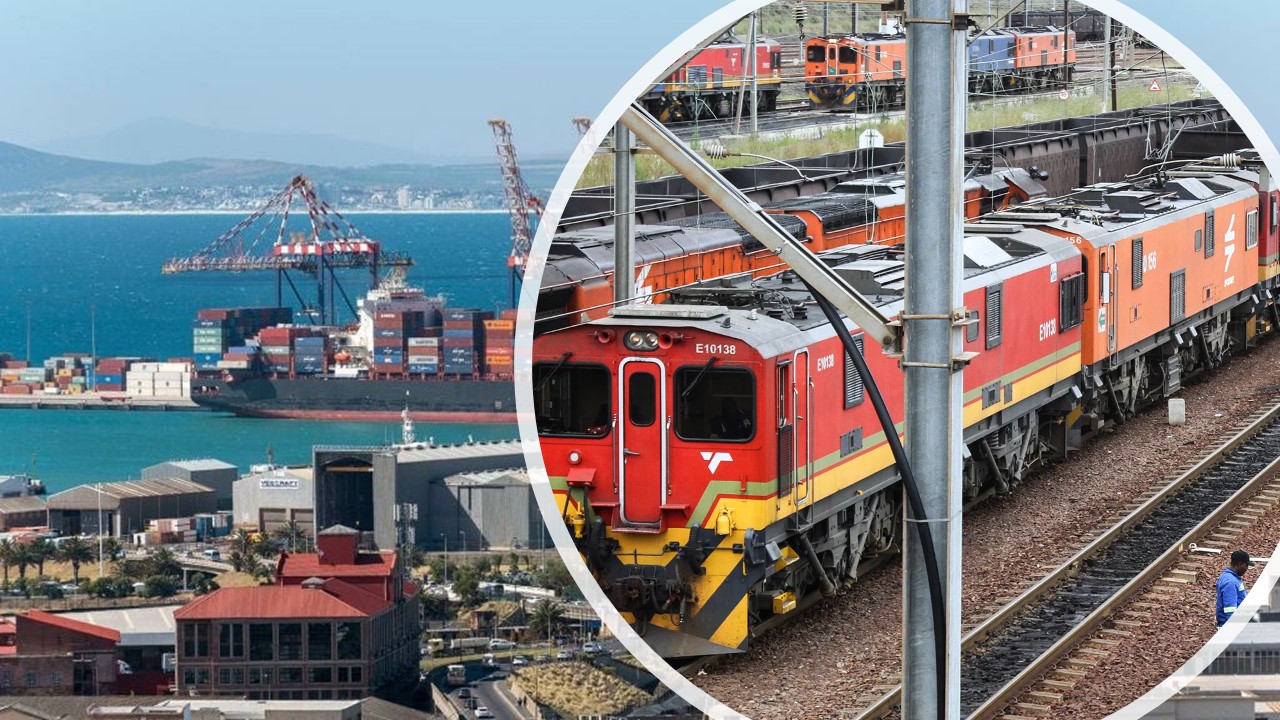Business
Transnet’s Turnaround: Can South Africa’s Logistics Giant Drive Economic Growth?

Transnet, South Africa’s state-owned logistics powerhouse, is at a crossroads. Responsible for ports, rail, and pipelines that form the backbone of the nation’s transport infrastructure, the company faces mounting challenges that threaten not only its survival but also the country’s economic growth.
Financial Troubles Weigh Heavy
Transnet reported a R2.2 billion loss for the first half of the 2024/2025 financial year, a sharp increase from the R1.6 billion loss in the same period last year.
Key financial pressures include:
- Debt Burden: A staggering R136 billion debt, with rising servicing costs eroding its cash interest cover to 1.9 times, below the required 2.5 times for some loans.
- Credit Concerns: S&P placed Transnet on credit watch, warning that insufficient cash flow improvements may lead to a downgrade.
Despite these challenges, the company saw a 3.2% rise in rail volumes, contributing to a 6% revenue increase to R41.5 billion, driven by higher tariffs across its operations.
Operational Bottlenecks Impacting the Economy
Transnet’s infrastructure limitations are costing the economy over R1 billion daily, with port congestion and rail capacity constraints hindering trade.
Annabel Bishop, Chief Economist at Investec, highlights the broader economic consequences:
“Transnet’s incapacity to fully meet demand has reduced GDP growth by around 3% per annum.”
Even with incremental improvements, South Africa’s GDP is projected to grow modestly by 1.8% in 2025, with Transnet’s inefficiencies remaining a drag.
In response to operational and governance challenges, Transnet launched a turnaround strategy over a year ago.
Key focus areas include:
- Infrastructure Investment: Modernising aging rail networks, port facilities, and equipment.
- Operational Efficiency: Streamlining processes and reducing bottlenecks.
- Governance Reforms: Strengthening transparency, addressing past mismanagement, and restoring confidence.
The Bureau of Economic Research (BER) stresses the importance of effective execution over mere planning, emphasizing collaboration between the government and private sector.
Collaborative Approach for Sustainability
Experts estimate that South Africa needs to invest R200 billion to revive its railways.
- Government’s Role: Provide policy support and resources to enable Transnet’s transformation.
- Private Sector Contribution: Offer expertise and investment to modernize infrastructure and improve efficiency.
Transnet’s Outlook: Challenges and Hope
Transnet’s management is focused on overcoming its financial and operational challenges through initiatives like:
- Enhancing rail and port infrastructure.
- Improving maintenance and rolling stock availability.
- Controlling costs and incentivizing employee performance.
The company is also collaborating with the government to reform the logistics sector, including allowing third-party access to rail infrastructure.
While debt management and high leverage remain significant hurdles, S&P acknowledges Transnet’s pivotal role in South Africa’s transport industry and its gradual progress due to reforms.
Transnet’s fate is closely tied to South Africa’s economic prospects. A successful turnaround could catalyze growth, while failure could deepen economic stagnation.
Will Transnet rise to the challenge? Only time—and the effective execution of its reforms—will tell.
Follow Joburg ETC on Facebook, Twitter and Instagram
For more News in Johannesburg, visit joburgetc.com















